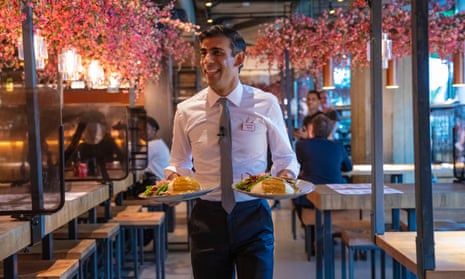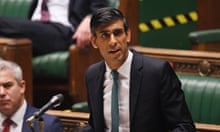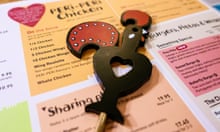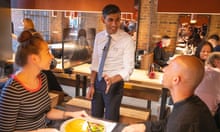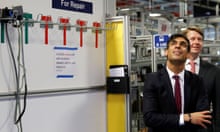Rishi Sunak has been warned he will need to act far more decisively to prevent mass unemployment this autumn after unveiling a £30bn mini budget designed to tempt nervous consumers out their Covid-19 hibernation.
The chancellor announced a short-term cut in VAT for hospitality and tourism and an August “eat out to help out” discount scheme as the government sought to send out a message to the public that it was safe to leave their homes and enjoy themselves.
Stressing that the country faced hardship ahead, he announced measures to revive the housing market with a nine-month stamp duty holiday – raising the threshold in England and Northern Ireland to £500,000 – as well as creating subsidised jobs for young people and providing targeted support for the sectors hit hardest by the lockdown.
Sunak was applauded by Conservative MPs in the Commons as he offered a £10-a-head discount eating out at restaurants and cut VAT from 20% to 5% for hospitality and tourism – including accommodation and meals.
But economic experts, trade unions and Labour questioned whether his “plan for jobs” had done enough to tackle the looming crisis and criticised the decision to phase out the furlough scheme in October.
Sunak said extending the wage support programme, which is covering the pay of 9.4 million furloughed workers, would provide people with false hope. Instead of providing continued state financing of 80% of wages up to a monthly maximum of £2,500, he told firms they would receive a £1,000 bonus for every furloughed worker taken on until next January.
Len McCluskey, the general secretary of the Unite union, said: “Redundancy notices are already flying around like confetti, so today was the day we needed the chancellor to put a stop to this with policies as bold and as necessary as the jobs retention scheme.
“This statement failed that test. With no modification to the JRS, that dreaded October cliff edge for businesses and workers has now been set in stone. Our fear is the summer jobs loss tsunami we have been pleading with the government to avoid will now surely only gather pace.”
The Organisation for Economic Co-operation and Development, a Paris-based thinktank, warned on Tuesday that the number of unemployed people in Britain could increase to almost 15% of the working population, from 3.9%, if the country experiences a second wave of the coronavirus pandemic.
Garry Young, a deputy director of the National Institute for Economic and Social Research, said: “The new measures look to be badly timed and could precipitate a rapid increase in unemployment.
“The incentives offered to employers look too small to be effective. Many employers have been topping up the pay of furloughed workers and are expected to bear more of the cost of the scheme from next month. They will be reluctant to do this now they know that the scheme won’t be extended.”
The Institute for Fiscal Studies thinktank said the money earmarked in Sunak’s summer statement brought the total government support to £190bn since the start of the crisis. Borrowing in the 2020-21 financial year was likely to exceed £300bn – comfortably the highest as a share of income since the second world war.
Sunak told MPs that further steps would be needed in his autumn budget: “We haven’t done everything we have so far just to step back now and say, ‘job done’. In truth, the job has only just begun.”
Business leaders were also underwhelmed by the package. Jonathan Geldart, the director general of the Institute of Directors, a leading employers’ group, said: “The chancellor pulled a few rabbits out of his hat today, but many directors will feel like he missed a trick. We fully understand the Treasury’s desire to focus on the young, and particularly badly affected sectors, but coronavirus has crippled many parts of the economy.”
Sunak told MPs he believed in “the nobility of work”, and “the inspiring power of opportunity”, but even some Conservatives were sceptical about whether the “retention bonus” would be enough to prevent layoffs.
Ryan Shorthouse, a director of the liberal conservative thinktank Bright Blue, said: “It seems unlikely that a £1,000 payment to employers for retaining each furloughed employee will be a strong enough incentive to keep people on the payroll.”
The Treasury’s package of cuts in VAT and stamp duty together with a job creation scheme for young workers was broadly in line with the measures announced by the last Labour chancellor, Alastair Darling, at the height of the global financial crisis in 2008. Sunak made clear to MPs that the cost to the economy from Covid-19 had been much greater, with a 25% drop in output in March and April wiping out the growth of the previous 18 years.
Under the “eat out to help out” scheme, consumers will be able to get 50% off their bill up to a maximum of £10 a head once a week from Mondays to Wednesdays in August and applies to restaurants, cafes and pubs that sign up. Sunak said it was an inducement to help safeguard 1.8m jobs by getting “customers back into restaurants, cafes and pubs”.
But the shadow chancellor, Annaliese Dodds, said the creation of an effective coronavirus test, trace and isolate system would have been far better in reassuring the public it was safe to emerge from lockdown.
“Despite all its talk, the government has failed to create a fully functioning ‘test, track and isolate’ system. This has damaged public confidence and in turn harmed consumer demand,” she said.
The chancellor was also criticised for his blasé approach to the risks of contracting coronavirus, as he encouraged the public to return to pubs and restaurants with an eating out discount.
Sunak was filmed serving customers in a London branch of food chain Wagamama, without wearing a face covering, and insisted in his speech: “We would not have lifted the restrictions if we did not think we could do so safely.”
Martin McKee, professor of European public health at the London School of Hygiene and Tropical Medicine, said: “The chancellor has, entirely understandably, prioritised support for the hospitality industry given how hard it has been hit. However, as the experience in other countries, most notably some US states and Israel, shows, there is a need for great caution.
“The risks are far greater indoors so, where possible, I would encourage people to eat al fresco, taking advantage of the summer weather. Personally, I would be very cautious about mixing with people without face coverings indoors until the level of circulating virus is much lower.”
